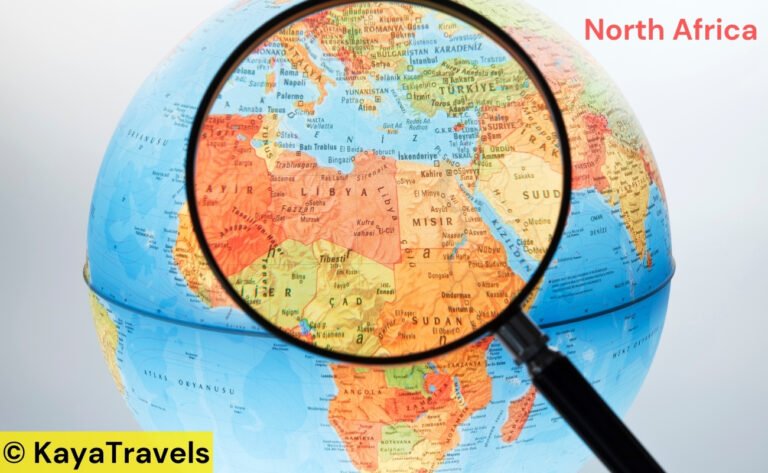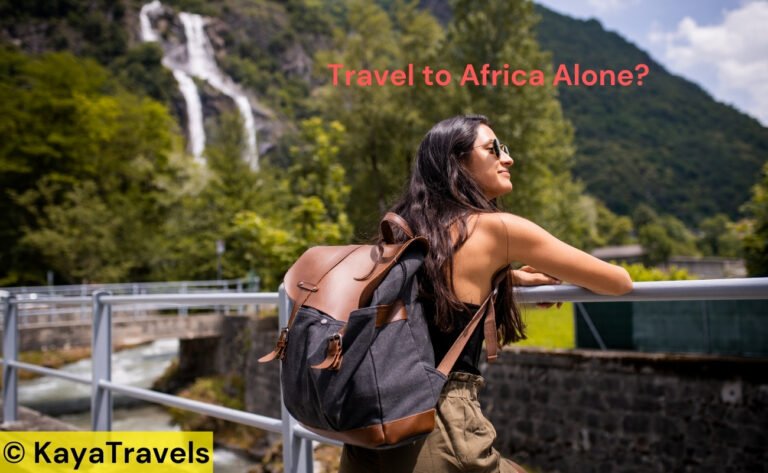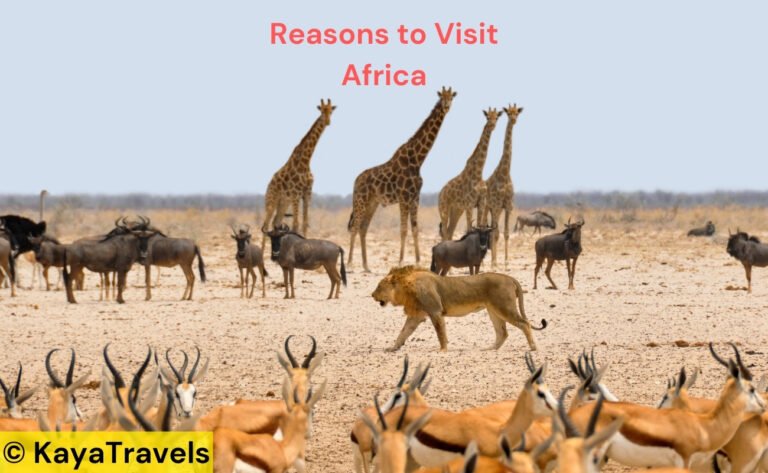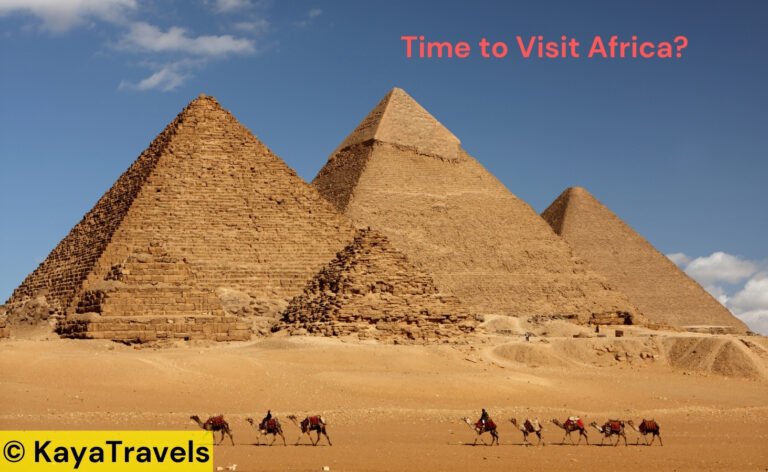Travelling to South Africa means setting out on an adventure to a land of diverse cultures and landscapes. But as with any journey, understanding the costs involved is essential before you take off.
On average, you should plan to spend around $87 per day on your trip to South Africa. This daily amount includes meals and local transportation, with food costing about $20 per day and transport around $15.
Accommodations vary, but you can expect to pay between $59 to $75 per night for a standard hotel room. Regarding flights, economy tickets for a round trip can range from $1,176 to $3,422.
This may seem significant, but thoughtful planning can make your South African getaway more affordable. Look for deals from various travel sites, as you might find flights starting from $432 one-way.
It’s not just the cost you should consider; think about the experiences you wish to have. Whether exploring the vibrant streets of Johannesburg, soaking in the beautiful vistas of Cape Town, or going on a safari in Kruger National Park, South Africa offers many activities to fit your budget. So plan carefully, save where you can, and get ready to immerse yourself in the beauty of South Africa.
Planning Your South Africa Trip
Embarking on a journey to South Africa requires savvy financial planning, picking the ideal travel times, and sketching an engaging strategy that best suits your interests and budget.
Determining Your Budget
Your South African adventure doesn’t have to break the bank. Travel expenses can range widely, but you can expect an average daily cost of around $87 per person. A one-week trip typically costs, while a two-week trip may cost nearly $1,218. These cost nearlymates include food, lodging, and local transportation. Keeping to a budget travel plan, you could potentially lower this cost. Here’s a quick guide to outline your financial plan:
- Affordable: Focus on lower-cost accommodations and public transportation.
- Mid-range Budget: Allow for guided tours, beginning, and private taxis occasionally.
- Splurge: occasionally stays, high-end meals, and private tours or car h
Choosing the Best Time to Visit
Timing is critical, as it affects both your experience and your wallet. Generally, the summer months (December to February) are perfect for the beach, yet these peaks in there are costs.
Conversely, the winter months (June to August) are cooler and superb for safaris, possibly reducing your budget strain—plan for spring or autumn shoulder seasons to catch the ideal compromise between weather and expenses.
Preparing an Itinerary
Scrutinizing the myriad of attractions and activities in South Africa is critical. If you have one week, consider a quick tour of Cape Town, the Winelands, and possibly a mini-safari.
For those who are two weeks old, you can extend your stay to the Garden Route or Kruger National Park. If you’re lucky enough to explore for one month, you can traverse most of the country, from Johannesburg’s history to Durban’s sunny shores, with various national parks in between. Always weave these into your itinerary:
- Must-see locations: Table Mountain, Kruger National Park, and Robben Island.
- Cultural experiences: Visit a local market or take a township tour.
- Adventure activities: Shark cage diving or bungee jumping for thrill-seekers.
Mapping out this adventure takes a blend of practical budgeting, strategic timing, and personalized tour crafting to ensure your South Africa trip is cost-effective and filled with unforgettable experiences.
Accommodation Options
When you travel to South Africa, choosing suitable accommodations can make your trip comfortable and memorable. The country offers a range of options to suit different budgets and preferences, from luxurious hotels to budget-friendly hostels.
Hotels and Guesthouses
You’ll find various basic and high-end hotels in major cities like Cape Town and Johannesburg. Hotel prices can vary significantly depending on the area and level of luxury.
- Budget Hotels: Expect to pay around $50 per night for basic accommodations.
- Luxury Hotels: Prices can rise to $200 or more per night for a premium experience.
For a more personal touch, consider staying in a guesthouse. These are often family-run and provide a cosy and authentic stay.
- Price Range: Guesthouse rates typically range from $30 to $100 per night, depending on location and amenities.
Hostels and Backpackers
Hostels are a go-to for many backpackers and budget travellers. They offer a mix of dorms and private rooms and are a great place to meet other travellers.
- Dorms: You can find a bed in a dorm room for as little as $10 to $20 per night.
- Private Rooms: These can cost between $30 and $60 per night.
Hostels often include communal spaces like kitchens and lounges, which can be a great way to save money and socialize.
Renting Apartments via Airbnb
For those looking for more privacy or planning a longer stay, renting an apartment through Airbnb can be a practical choice.
- Private Room: Starting at around $20 per night.
- Entire Apartment: Costs can range from $40 to over $100 per night, depending on the location and size.
Renting can provide the comforts of home and the opportunity to stay in residential areas, offering a different perspective on local life.
Remember to consider the location, transportation options, and reviews from previous guests when booking your accommodation. With these tips, you can find the perfect place to stay during your South African adventure.
Transportation and Logistics
When planning your South African adventure, understanding your transport options is essential.
Public Transport Overview
South Africa’s public transport system includes buses, trains, and minibus taxis. Metrorail trains connect major cities but may not be the best choice for tourists seeking reliable and punctual travel. The bus service, such as Intercape, offers a more comfortable way to travel long distances, though it’s slower than driving or flying.
Car Rental Advice
Renting a car gives you the freedom to explore at your own pace. South Africa drives on the left, so you’ll want to be comfortable with that. You’ll need a valid driver’s license; renting from reputable companies is wise. Check for a rental with unlimited kilometres and understand the insurance policies to avoid unexpected costs.
Domestic Flights and Budget Airlines
For longer distances, domestic flights can save time. South Africa has several budget airlines, such as FlySafair and Kulula, offering competitive rates. Check baggage policies, as budget airlines may charge extra for checked luggage. Booking in advance typically secures the best fares.
Food and Dining Experiences
South Africa offers diverse food and dining experiences spanning local street food to luxurious fine dining. As you traverse this culinary landscape, you’ll encounter the smoky aroma of the braai, the comfort of traditional pap, and the elegance of high-end cuisine.
Local Cuisine and Street Food
Indulging in South African street food is a journey through the country’s rich cultural tapestry. Not to be missed is the braai, an open-grill barbecue that’s a hearty tradition involving various meats. It’s more than just a meal; it’s a social event. For a quick bite, sink your teeth into boerewors rolls – a savoury sausage sandwich staple at street-side vendors.
- Pap, a polenta-like dish made from mielie meal, often accompanies braai meats.
- Vegetarians can enjoy chakalaka, a spicy vegetable relish with a burst of flavour.
Fine Dining and Restaurants
South Africa’s fine dining scene presents a unique experience brimming with local and international cuisines. The country’s top-tier restaurants often incorporate traditional ingredients into high-end dishes, allowing for a gourmet interpretation of South African flavours.
- The Test Kitchen in Cape Town often ranks as one of the world’s best restaurants, offering innovative dishes like their signature mushrooms.
- Many fine dining establishments also house exceptional wine pairings from local vineyards, adding another layer to your dinner.
Self-Catering Options
South Africa’s markets and shops provide a range of high-quality ingredients for travellers who prefer to prepare their meals. This allows for flexibility and a personal touch in meal preparation while exploring.
- Supermarkets and local markets are accessible, with various fresh produce and meats.
- Braai packs, spices, and sauces can be purchased, allowing you to recreate the nation’s favourite barbecue at your accommodation.
Cultural and Natural Attractions
South Africa is a kaleidoscope of cultures and landscapes with an array of attractions for every type of traveller. Whether your interest lies in the rich tapestry of historical sites or the breathtaking natural beauty, South Africa delivers an unforgettable experience.
Historical Sites and Museums
Its many historical sites and museums immortalize South Africa’s turbulent history. In cities like Johannesburg and Pretoria, you can visit the Apartheid Museum and Freedom Park, which tell the story of the country’s journey to democracy.
On Robben Island, off the coast of Cape Town, you can see the cell where Nelson Mandela was imprisoned. For a blend of cultural history and natural splendour, the Cradle of Humankind near Johannesburg is a UNESCO World Heritage site with rich fossil sites.
Outdoor Adventures and Wildlife
If you’re looking for adventure and wildlife, look no further than South Africa’s expansive outdoors. Kruger National Park offers a glimpse into the world of the Big Five.
For a scenic outdoor trek, consider the lush Garden Route or the dramatic landscapes of the Drakensberg Mountains. Explore the Tsitsikamma National Park, where abundant ancient forests and coastal vistas exist.
Beaches and Coastal Activities
South Africa’s beaches are among the best in the world for sun, sand, and sea. You can find the chic Clifton Beaches or the family-friendly Muizenberg in Cape Town. Durban’s warm water and good weather make it perfect for surfing. Drive further to the Eastern Cape for the rugged beauty of Wild Coast or the soft sands of Plettenberg Bay.
Whether steeped in history or bursting with natural wonder, South Africa invites you to explore its many treasures, from majestic mountain ranges and rich cultural landmarks to pristine coastlines and diverse wildlife.
Safety and Practical Considerations
Travelling to South Africa requires awareness of safety, local laws, and practical necessities. Let’s walk through critical aspects to ensure your enjoyable and secure trip.
Understanding Local Laws and Customs
Familiarize yourself with South Africa’s legal framework and social etiquette. Respect local customs and be mindful that behaviour acceptable at home may not be appropriate here.
For example, public displays of affection between same-sex couples can attract undue attention, even though such relationships are legally recognized in South Africa. Observing local traditions is essential when visiting rural areas or neighbouring countries like Lesotho or Botswana.
Driving regulations should be strictly adhered to. International driving permits and your home country’s driver’s license are often required. Remember to drive on the left side of the road.
Dealing with Health and Safety
Maintaining your health and safety in South Africa means being vigilant, especially with the prevalent crime rate in some urban areas. Always travel in groups, especially if you’re a solo traveller, and avoid high-crime areas, particularly after dark. Common crimes include petty theft, muggings, carjackings, and sometimes more violent offences.
For health, ensure all your vaccinations are up-to-date and exercise caution with food and water. Public health facilities may not meet your accustomed standards, so travel health insurance with coverage for private hospital care is a wise choice.
Money, Connectivity, and Communication
Budget travellers should be cautious with cash and valuables. Limit cash transactions and opt for card payments whenever possible. When withdrawing money, do so in a secure location and keep your wallet securely on your person.
Connectivity is essential for staying in touch and navigating safely. Purchasing a local SIM card can be an economical option for data and calls. Moreover, a SIM card can act as a layer of security, as it keeps you connected in emergencies.
It’s not uncommon for tourists to experience issues with corruption, so it’s prudent to be aware and avoid any actions that may seem corrupt or illegal. Should you face problems, reach out to local authorities with caution.
When planning your daily activities and experiences like safaris or exploring bucket-list destinations, plan for expenses like entrance fees, guides, transport, and daily expenses. Research if you’re visiting during the shoulder season, which can affect prices and accessibility.






